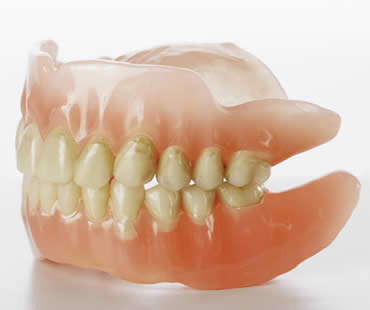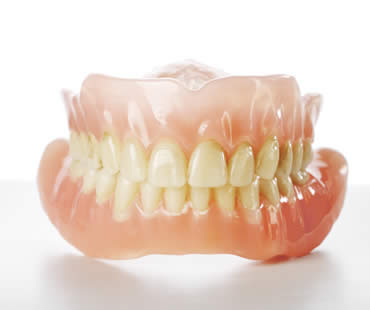
You might have the idea that visiting the dentist isn’t that important in the overall picture of your health, but you’re wrong. Establishing a relationship with a good dentist is key to being healthy, and seeking treatment from a family dentist is a great way to spread that good health throughout your whole family.
Family dentists provide treatment for all ages. Dentists suggest that kids should begin visiting the dentist around their first birthday so that they can become adjusted to the environment and learn about proper hygiene. It’s helpful for little ones to go to the same dentist from the start, as they become comfortable with the staff and office. In theory, kids are able to go to the same family dentist their whole lives!
Adults, teenagers, and seniors are all able to visit the family dentist as well. These professionals are trained and experienced in handling dental conditions throughout all age ranges, from filling cavities common in the younger crowds to cosmetic treatments for the middle-aged to dental implants or gum disease in older adults. One dentist and one convenient location makes it easy on the whole family.
Dentists suggest getting checkups every six months for optimum oral health. That way examinations can catch and treat problems early, before they have a chance to worsen into serious issues. Professional cleanings keep your teeth healthy and looking great. Regular checkups can also improve your overall health, as studies show there’s a strong link between gum disease and issues like heart disease, diabetes, or stroke. Expectant mothers are also at higher risk of complications if they have gum disease. Oral cancer is another thing family dentists watch for during checkups. Chances of recovery are greatly increased when oral cancer is detected early.
The importance of having a family dentist cannot be downplayed. The smiles and the health of every member of your family will benefit.
Schedule your appointment at our Longview dental office

Sedation dentistry at our Longview dental office helps patients get the care they need for their teeth and can turn an otherwise stressful experience into a comfortable dental visit. Initially developed to focus on patients with special needs and those with acute dental phobias, it has progressed to be utilized by a wide range of patient groups.
Putting off dental care can affect all levels of your health. Even regular cleanings are shown to improve overall health. Untreated issues can lead to bad breath, gingivitis or periodontitis, bone loss, acute gum disease, or other serious issues.
Have you put off your dental care? Have you have been wondering if a faster, more comfortable and relaxed dental experience could benefit you? If so, see if some of the symptoms below are relatable to you.
- You miss regular check-ups and postpone care.
- You experience anxiety at the mere thought of a dental visit.
- It has been years since your last dental examination.
- The sights, sounds, and smells of a dental office cause you to feel uncomfortable and tense.
- You feel exhausted after a dental visit. Your muscles are tired and sore.
- You have an acute gag reflex and worry about vomiting during a dental procedure.
- You have difficulty getting numb during procedures.
- You have a physical condition such as Parkinson’s disease or cerebral palsy that causes you to make involuntary movements.
- You have TMJ (Temporomandibular Joint disorder) or are unable to keep your mouth open for long periods of time.
- Your jaw might be sore for days after a dental visit.
- You need extensive, painful or treatments over several visits, such as gum surgery, bone grafting or extractions.
- You have a fearful and anxious child who won’t follow instructions or sit still during a dental visit.
- You desire the most comfortable dental experience possible.
Does even one of these descriptions ring true for you? If so, talk to your dentist about sedation dentistry today! Don’t wait to enjoy the optimal level of oral care available to you.
If you live in the Longview area contact us today

You may expect you won’t need dentures because you take good care of your teeth. However, dentures are more prevalent than you may think. The number of adults in the United States needing dentures is expected to increase from 33 million in 1991 to 37 million in 2020. If you are wondering how likely you are to keep your teeth, here are some warning signs that may indicate dentures are in your future.
- You don’t visit your dentist twice a year for regular checkups and routine cleaning. Gum disease and tooth decay are the leading causes of tooth loss; therefore, it is critical to be proactive with dental care to prevent problems that could cause the need for extraction.
- You have gums that are swollen, tender, red, or bleeding which are indications of periodontal disease. Left untreated, gum disease is the primary cause of adult tooth loss.
- Your teeth have become loose, are shifting, or have developed wider gaps between them that can indicate bone loss from gum disease.
- You have severe tooth pain that could be a sign that decay has progressed and is attacking the nerve at the center of the tooth. Once tooth decay has advanced, it is more likely your tooth will need to be removed.
- You are already missing several of your teeth. If you are missing more than two teeth, it is important to replace them with some sort of prosthesis to keep pressure off of your remaining teeth.
- It is difficult for you to eat hard candy or chewy foods, which may indicate a cracked tooth, cavities, or gum disease.
- If you suffer from recurring stomach aches or indigestion, it may be a sign of dental problems. When you can’t chew properly, you end up swallowing larger pieces of food which is hard on your digestion.
Tooth loss does not happen overnight. With proper oral hygiene and regular dental visits, you may be able to avoid or delay the need for dentures in your future.
We look forward to seeing you in our Longview dental office

Dentures have improved dramatically over the past several years. Whether it’s your first set of dentures or your fifth set, you probably have questions. Below are some commonly asked questions and answers about dentures:
- Will dentures change how I look? Today’s dentures are personalized to your mouth, making their appearance more natural than ever. Dentures also support your cheeks and lips, making you look years younger.
- Will dentures change how I feel? After a period of adjustment, dentures should make you feel more confident than ever.
- Will dentures alter my speech? While speaking may be difficult initially, with practice, your speech should quickly return to normal. Practicing reading and counting out loud will help to speed up the adjustment.
- Will dentures affect how I eat? Eating may take some practice, and you should start with a soft food diet while you adjust to the differences between eating with your natural teeth and dentures. Take small bites and try to chew on both sides of your mouth at the same time. Avoid hard, crunchy or chewy foods that can damage your dentures.
- How do I care for my dentures? Clean dentures daily, brushing immediately after every meal if possible. Use a soft brush and gentle cleanser, taking care to avoid hard abrasives. Be careful when they are out of your mouth not to drop them or clean them on hard surfaces.
- Once I have dentures, will I still need to see the dentist? Regular dental examinations and professional denture cleanings are vital to maintaining your oral health. Have your dentist periodically check the fit of your dentures to ensure they are comfortable and last for as long as possible.
- When will I need to replace my dentures? With care, dentures typically last 5-10 years. Because your mouth continues to change shape as you age and denture teeth wear down, you should have them checked yearly to avoid any significant problems.
Consult with your dental professional about any additional questions or concerns you may have about your future with dentures and your potential for a bright, new smile.
Our dental office is located in Longview

In the past, replacing lost teeth meant getting dentures or bridges. Even though these offered the best way at the time to restore your mouth’s appearance and function, technology has improved through the development of dental implants. The main drawbacks of bridges and dentures is that they do not feel or look just like real teeth, and it is difficult to chew tough foods. The advantage of implants is that they look and perform so well that you can’t even tell they are not your natural teeth.
Made from titanium, dental implants are screws that are surgically placed directly into your jawbone. They are light and malleable, but durable and strong. The titanium screws are implanted into your jawbone and given time to heal. Once healing is complete, one or multiple crowns are placed on top of the implant to recreate your missing teeth. One implant can hold more than one screw, so it is possible to attach as many crowns as needed to replace your missing teeth.
Dental implants look so much like real teeth that others won’t even be able to tell that you have any artificial teeth. You might even forget about it yourself, as they feel real as well. Since the implants are securely placed in your jaw, they are as strong as real teeth and you are able to chew and bite anything that you would normally eat. Another great thing about implants is that they don’t impact any of your adjacent healthy teeth. While bridges and dentures can sometimes damage neighboring teeth because those teeth are necessary for support, implants avoid this problem. You are left with a fully restored and comfortable smile.
Our dental office is located in Longview

Once you’ve received dentures to restore missing teeth, it will take some time to get accustomed to them. There’s no reason to be alarmed or frightened about wearing dentures, because most patients go through the same adjustment period. If you’re aware of the potential issues and how to react to them, the process will be easier for you. Here are some rules to follow as you begin wearing dentures.
Don’t try to fix them yourself.
Even though dentures are customized just for you, that doesn’t mean they always fit perfectly right away. There might be some molding defects or other minor flaws that cause the dentures not to fit exactly right or rub sores on your gums. If this happens, don’t try to correct the problem yourself. Take your dentures back to your dentist to explain what’s bothering you, and give your dentist a chance to properly and safely adjust them without damaging the dentures.
Watch your diet.
Similar to getting braces at first, you’ll want to stick to eating soft foods for the first few days of denture wear. Avoid foods that are sticky or hard to chew. Focus on chewing with your back teeth instead of the front part of your dentures, and cut your food into small bites.
Soak your dentures.
Soaking your dentures in a solution recommended by your dentist can help keep them hydrated. This will avoid dryness, which causes friction between your dentures and gums and can lead to mouth sores.
You’re going to unintentionally bite yourself.
It’s part of wearing dentures at first; you’ll probably bite the insides of your cheeks. It’s a natural part of adjusting to the appliance in your mouth, and it will subside as you get used to wearing them. Gargling with a fluoride rinse or other mouthwash provided by your dentist may provide relief.
If you need a dentist in Longview contact us today









